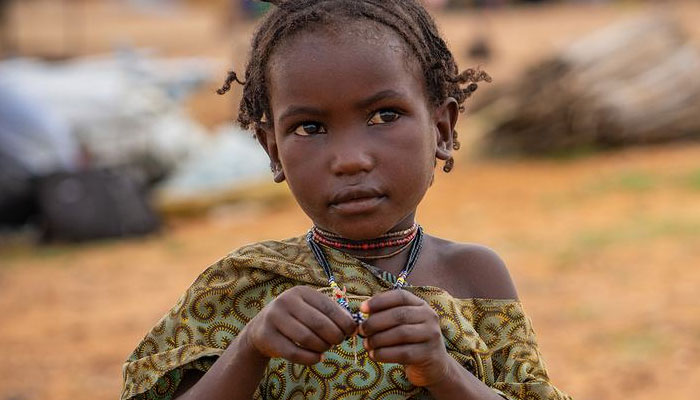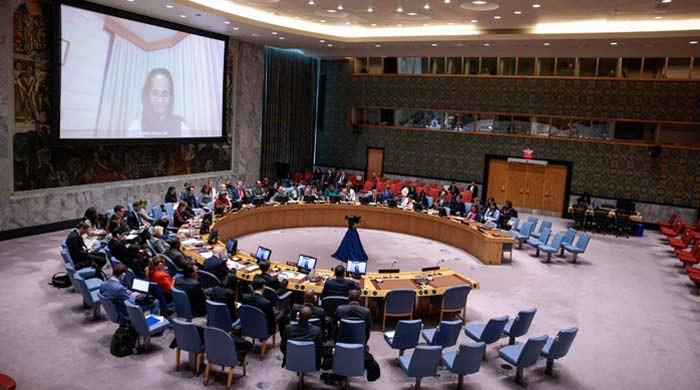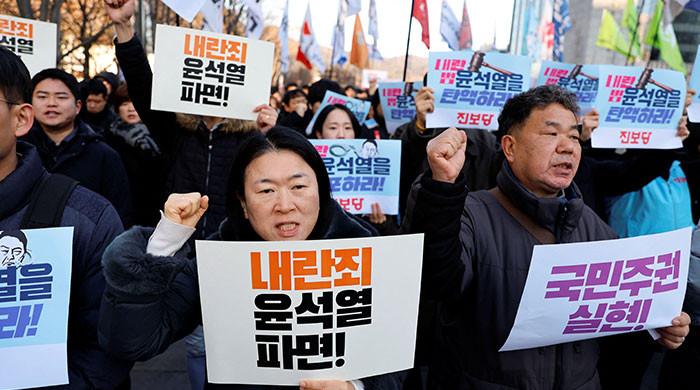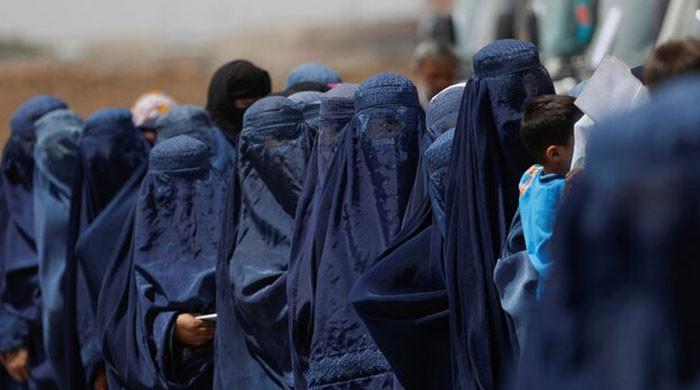Sahel crisis: UN warns 10mn children at risk and in need of aid
UNICEF said armed conflict had become increasingly brutal, with some groups operating across vast swathes of territory
March 18, 2023

GENEVA: The United Nations has issued a warning that as a result of the escalating violence, ten million children in the central Sahel region of West Africa are now in a state of "extreme jeopardy" and are in desperate need of humanitarian assistance.
The number of children in dire need of aid in Burkina Faso, Mali and Niger is twice as many as in 2020, the children's agency UNICEF said.
Meanwhile a further four million children are at risk in neighbouring countries as battles between armed groups and security forces spill across the borders.
"Children are increasingly caught up in the armed conflict, as victims of intensifying military clashes, or targeted by non-state armed groups," Marie-Pierre Poirier, UNICEF's regional director for west and central Africa, said.
"The year 2022 was particularly violent for children in the central Sahel. All parties to the conflict need to urgently stop attacks both on children, and their schools, health centres, and homes."
The region has been caught in a spiral of jihadist violence for years, with Mali struggling with an 11-year-old insurgency that has claimed thousands of lives and forced hundreds of thousands from their homes.
Meanwhile Burkina Faso, one of the world's most volatile and impoverished countries, witnessed two military coups in 2022.
UNICEF said the armed conflict engulfing the region had become increasingly brutal, with some groups that operate across vast swathes of territory blockading towns and sabotaging water networks.
Schools burned, looted
In Burkina Faso, three times as many children were verified as killed during the first nine months of 2022 as in the same period in 2021, according to UN data.
Most died from gunshot wounds during attacks on their villages or as a result of improvised explosive devices or explosive remnants of war.
Armed groups which oppose state education "systematically burn and loot schools, and threaten, abduct or kill teachers", said UNICEF.
More than 8,300 schools have shut down across the three countries: more than one in five in Burkina Faso, while nearly a third of schools in Niger's Tillaberi region are no longer functional.
James Jones, UNICEF spokesman for the region, detailed "the extreme jeopardy facing the lives and futures of children in the central Sahel".
"Things have been accelerating downhill at an alarming pace," he told reporters in Geneva.
"Slowly and surely it has been spreading, and children -- millions of them -- are increasingly in the middle of it."
He said there were several factors behind the worsening trends, including higher food prices, chronic underfunding of humanitarian and development work, a lack of national commitment to child services, and climate change, with temperatures rising in the Sahel 1.5 times faster than the global average.
UNICEF called on all parties to the conflict to fulfil their "moral and legal obligations" towards children under international law, including ending attacks on youngsters and schools.
Spreading southwards
UNICEF said the violence was spreading from the central Sahel into the northern regions of Benin, Ivory Coast, Ghana and Togo, which are remote communities where children have very limited access to protection and services.
"Insecurity is growing in these coastal countries, linked to similar activities by non-state armed groups," said Jones.
In 2022, UNICEF received only a third of the $391 million sought for the central Sahel appeal.
In 2023, it has appealed for $473.8 million for the humanitarian response plan in the central Sahel and neighbouring coastal countries.
The crisis needs long-term investment to foster "social cohesion, sustainable development, and a better future for children," Poirier said.











